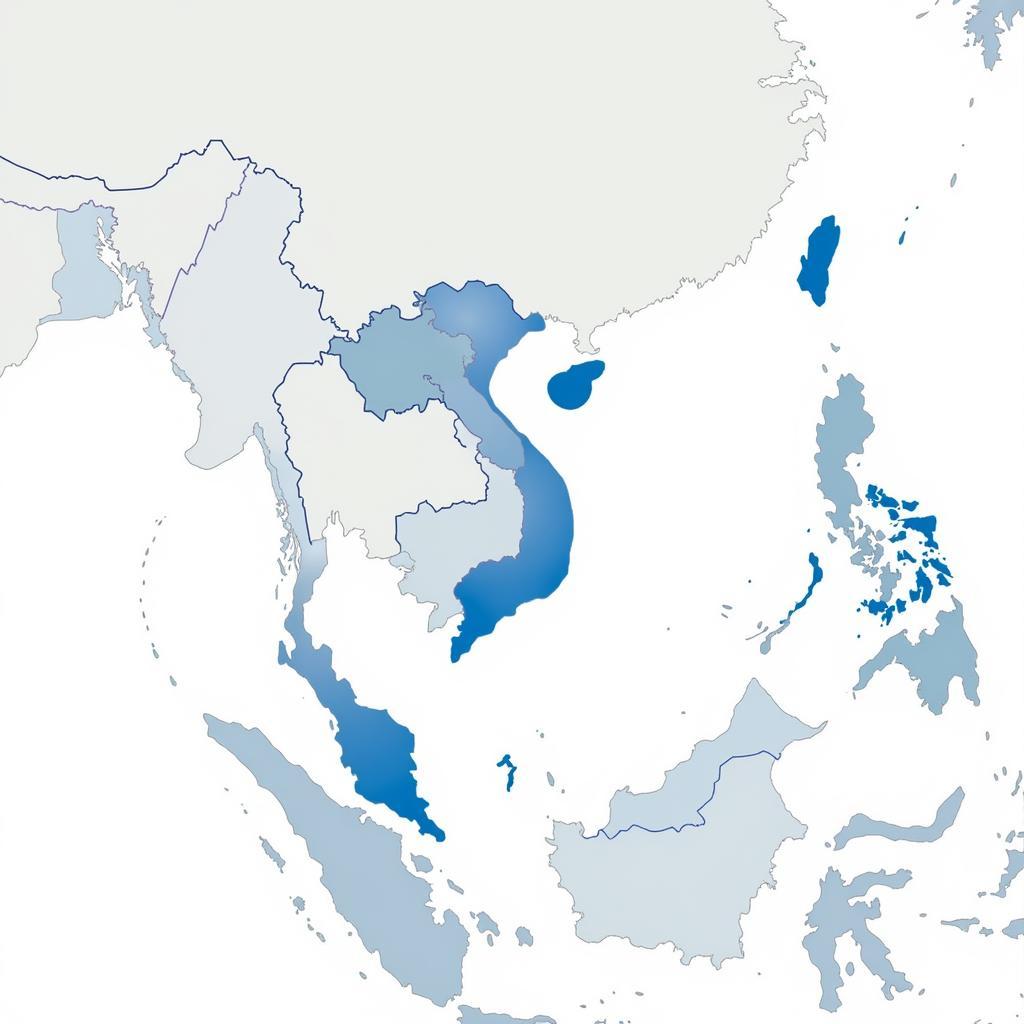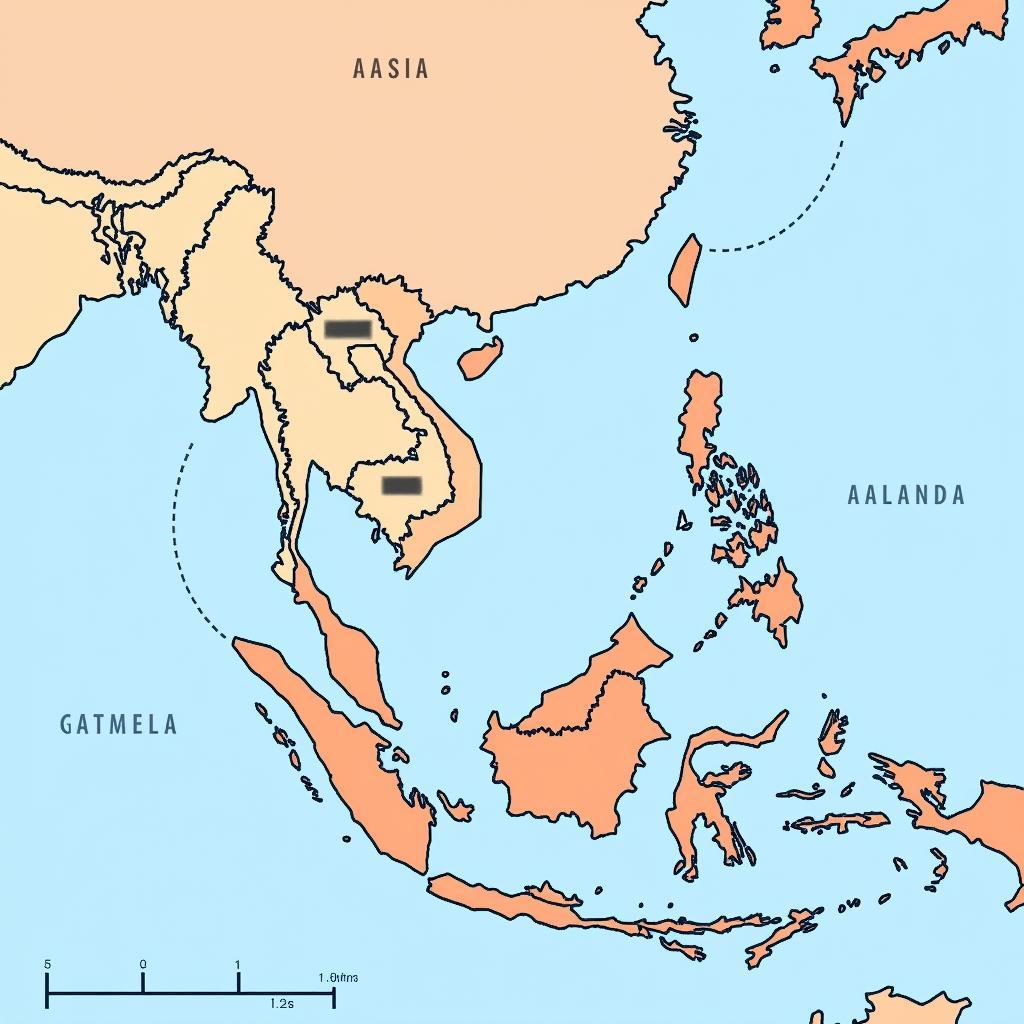ASEAN, AFTA, ADB, and APEC are key players in Southeast Asia’s economic and political landscape. This article delves into their interconnected roles and their significance in shaping the region’s future. We’ll explore how these organizations work together to foster growth, integration, and cooperation within ASEAN and beyond.
Navigating the ASEAN Landscape: AFTA, ADB, and APEC
The Association of Southeast Asian Nations (ASEAN) is a vital regional bloc. Its impact is amplified by its close relationship with organizations like the ASEAN Free Trade Area (AFTA), the Asian Development Bank (ADB), and the Asia-Pacific Economic Cooperation (APEC). Understanding their individual roles and how they intersect is crucial to grasping the dynamics of Southeast Asian development.
AFTA: Driving Intra-ASEAN Trade
AFTA, established in 1992, plays a pivotal role in reducing tariffs and non-tariff barriers among ASEAN member states. This fosters a more competitive and integrated market within the region, boosting trade and investment flows. The elimination and reduction of tariffs have significantly lowered the cost of doing business within ASEAN.
“AFTA has been instrumental in creating a more dynamic and interconnected ASEAN market,” says Dr. Amelia Tan, Senior Economist at the Southeast Asian Institute of Economic Research. “The free flow of goods and services has spurred innovation and created opportunities for businesses of all sizes.”
ADB: Financing Development and Infrastructure
The ADB, a multilateral development bank, provides financial and technical assistance to developing countries in Asia and the Pacific, including ASEAN members. Its focus on infrastructure development, human capital development, and regional cooperation is vital for promoting sustainable economic growth within the bloc. ADB funding has supported crucial projects ranging from transportation networks to renewable energy initiatives.
APEC: Fostering Broader Regional Cooperation
APEC, a broader regional forum encompassing economies from across the Asia-Pacific, provides a platform for dialogue and cooperation on trade, investment, and economic policy. ASEAN member states actively participate in APEC, leveraging this forum to engage with major economies like the US, China, and Japan. This broader engagement helps integrate ASEAN into global value chains and promotes economic integration across the Asia-Pacific region.
“APEC’s collaborative approach allows ASEAN nations to address shared challenges and promote regional prosperity,” notes Dr. Wei Lim, a specialist in International Relations at the University of Singapore. “The forum serves as a crucial bridge between ASEAN and the wider Asia-Pacific community.”
The Synergy: A Combined Force for Growth
The combined influence of AFTA, ADB, and APEC strengthens ASEAN’s position in the global economy. AFTA’s focus on internal trade, complemented by ADB’s development support and APEC’s broader regional integration efforts, creates a powerful synergy. This synergy drives sustainable economic growth, fosters innovation, and improves the lives of people across Southeast Asia.
Conclusion: A Future of Collaboration
ASEAN, AFTA, ADB, and APEC are intrinsically linked in their pursuit of a prosperous and integrated Southeast Asia. Their continued collaboration will be essential for navigating future challenges and realizing the region’s full potential. By working together, these organizations can unlock further economic opportunities, strengthen regional ties, and contribute to a more stable and interconnected world.
FAQ
- What is the main difference between AFTA and APEC?
- How does the ADB support ASEAN member states?
- What are the key benefits of ASEAN membership?
- How does APEC contribute to regional economic integration?
- What are the main challenges facing ASEAN in the 21st century?
- How does AFTA impact trade within ASEAN?
- What is the role of the ADB in infrastructure development?
Other Related Articles:
- The Future of ASEAN Economic Integration
- The Role of the ADB in Sustainable Development
- APEC’s Contribution to Regional Trade
Need help? Contact us 24/7: Phone: 0369020373, Email: [email protected] or visit us at: Thon Ngoc Lien, Hiep Hoa, Bac Giang, Vietnam.


